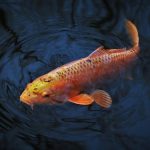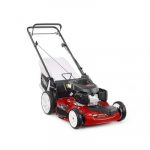I think we can all agree that slugs and snails are some of the least attractive members of the animal kingdom. They are also the most common members you’ll run into in your lawn and garden. These animals are rarely beneficial for your garden, and an infestation of them can do some pretty serious damage if they try.
Courtesy: Josh Beasley
Is There a Difference Between a Slug and a Snail?
Yes, the two are different members of the mollusk family. But for our intents and purposes, there’s not much of a difference. They have similar traits and behaviors, cause similar damage, and can be dealt with in similar ways. In regards to the ones we are concerned with, the Arions species of slugs and the common brown garden snail are what you will most likely encounter in your yard.
Are Slugs and Snails Beneficial to a Lawn and Garden?
To an extent, yes. Like worms – a very beneficial animal to have in the garden – slugs and snails help to recycle organic matter, which helps to feed the lawn and garden. They also attract predatory creatures such as birds, snakes, toads, hedgehogs, and other mammals.
What Kind of Damage can Slugs and Snails Cause?
Snails and slugs will climb trees and bushes, and will chew through leaves, fruit rinds, and vegetables. They have the ability to chew through foliage faster than it will grow back, and can decimate trees and bushes. Even worse, they will attack edible crops, making the individual plant unattractive to eat, as well as making an entire crop more susceptible to disease and rot. If accidentally consumed while inside an edible crop, they can transfer parasitic infections to humans and animals. Finally, some slugs will prey on earthworms, which are incredibly beneficial to your lawn and garden.
How Can You Control or Eliminate Slugs and Snails?
There are three methods you can use to control or eliminate a slug and snail population. We would recommend against complete elimination, due to the benefits these little guys can have for a garden, but you may find controlling the population necessary.
- Mechanical – The mucus they use to glide over the ground reacts with copper – simply lay down copper bands or place copper tape around the area you need to keep the slugs and snails out of.
- Natural – This covers a variety of methods, and these are also our favorite methods. They are simple, not harmful to the environment, and take little effort.
- Beer trap: Sink a plastic container with vertical sides into the ground, fill it to within an inch of the rim with beer (just find the cheapest stuff you can, they aren’t beer snobs) and leave it go. The slugs and snails will try to get the beer, fall in, and drown.
- Hired killers: Nematodes are active predators of slugs, while decollate snails will go after other snails, feeding on adults and eggs. Care must be taken with decollate snails, though, as they will eat plants as well.
- Habitat modification: Slugs and snails like moist, dark areas. Simply keeping a clean, neat yard can reduce the available hiding spots.
- Chemical – Bait traps using iron phosphate will attract and poison the snail. This is a safe method to use, as iron phosphate is not lethal to humans or pets. Another little piece of chemical warfare that is well known is simple salt, but they can’t be baited to go after salt, it will only deter them.
In keeping a natural lawn and garden, we need to learn to live with snails and slugs. A small population can be more helpful than harmful, and it is simply part of the natural ecosystem. So if you see a handful of snails and slugs, be happy – but if you see more, start preparing to manage the population, as it will continue to grow as time passes.





